Search the Special Collections and Archives Portal
Search Results
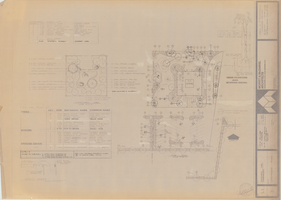
Southwest Gas Corporation office building: architectural drawing
Date
Archival Collection
Image
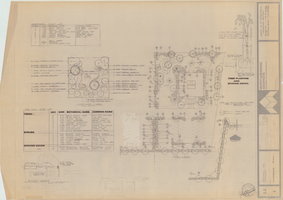
Southwest Gas Corporation office building: architectural drawing
Date
Archival Collection
Image
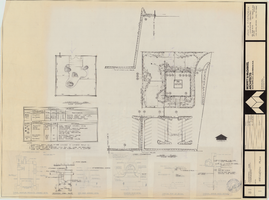
Southwest Gas Corporation office building: architectural drawing
Date
Archival Collection
Image
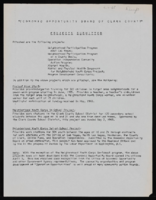
Projects submitted to the Economic Opportunity Board of Clark County: documents
Date
Archival Collection
Description
From the Clark County Economic Opportunity Board Records -- Series II: Projects. This folder contains documents about the projects submitted to the Economic Opportunity Board of Clark County agendas, documents about Work Experience Programs in Nevada, documents about the Economic Opportunity Act of 1964, and neighborhood services center.
Text
Don Ashbaugh Papers on Nevada Ghost Towns
Identifier
Abstract
The Don Ashbaugh Papers (1950-1960) document Las Vegas history, Nevada history, and ghost towns. The collection is comprised of the working manuscript of Don Ashbaugh's book, Nevada's Turbulent Yesterday: A Study in Ghost Towns. The collection also contains typescript drafts, newspaper clippings, and a geographical index of Nevada ghost towns.
Archival Collection

Transcript of interview with Christie Young by Dennis McBride, October 18, 1998
Date
Archival Collection
Description
I've known Christie Young for many years and was grateful she agreed to be interviewed for the Las Vegas Gay Archives Oral History Project. Not only is she frank in what she says, but her background as a researcher in sexual issues and as a straight woman involved in the gay community give her a unique perspective. Ancillary to her donation of this interview transcript to the University of Nevada, Las Vegas, Christie has generously donated her personal journals which detail more than a decade of her life including the years she worked with Las Vegas's gay community . Christie shares the project's concern that documentation of the gay community is ephemeral and vanishes rapidly; her determination that her contribution to that community be preserved greatly enriches our knowledge and will benefit future scholars.
Text

Anita Tijerina Revilla oral history interview: transcript
Date
Archival Collection
Description
Oral history interview with Anita Tijerina Revilla conducted by Marcela Rodriguez-Campo on October 09, 2018 for the Latinx Voices of Southern Nevada Oral History Project. In this interview, Revilla discusses her early life in San Antonio, Texas. She talks about her decision to make education a priority, figuring out the college application process on her own, and her initial interest in social justice. Revilla talks about how her critical consciousness was developed, and her pedagogical approach to teaching. Revilla describes her role in the 2006 May Day march, advocating advocating for the queer community, and disrupting oppressive systems to increase educational access for students. Lastly, Revilla discusses ethnic studies and the history of inequality in the United States.
Text
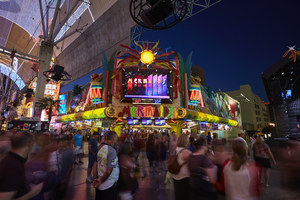
Photographs of Mermaids Casino signs, Las Vegas (Nev.), June 24, 2016
Date
Archival Collection
Description
Site address: 32 Fremont St
Sign owner: Derek and Greg Stevens
Sign details: Shutdown in 2016, opened briefly June 28th, 2017 for 8 hours to abide by gambling license law, was torn down shortly after. 2.76 acre lot, originally built in 1949.
Sign condition: Signage was removed from building during deconstruction
Sign form: Decorated shed
Sign-specific description: Covering all the sides of the Mermaids facing Fremont street, gives the feel of New Orleans during Mardi Gras with its bright vibrant colors, drums, maracas, and other items. Skeleton neon was used to accentuate features of the sign like details in the drums, outlining the word "Mermaids", and a good portion of the sign was internally lit as well. Giant TV screen hung in the middle at the corner of the building, giant Sun shaped pinata thing above the TV screen adding more to the theme.
Sign - type of display: Neon, LED screen
Sign - media: Steel and fiberglass
Sign - non-neon treatments: LED screen
Sign animation: Animated with an LED TV screen and some neon would flash on and off
Sign environment: Downtown on Fremont Street, part of the Experience. Surrounded by other casinos and gift stores.
Sign - date of installation: c. 1999
Sign - date of redesign/move: Torn down Summer 2017
Sign - thematic influences: Southern party themed, Mardi Gras.
Sign - artistic significance: American South and Mardi Gras.
Survey - research locations: Vital Vegas, Assessor's website
Surveyor: Danny Jacobs
Survey - date completed: 2017-09-09
Sign keywords: Neon; Steel; Fiberglass; Flashing; Video screen; Sculptural
Mixed Content
Bill Schafer Papers
Identifier
Abstract
The Bill Schafer Papers (1980-2018) contain personal and professional papers of Las Vegas, Nevada journalist and publisher, Bill Schafer, and photographs from various LGBTQIA+ related events in Las Vegas. The materials include files related to Schafer's work managing the
Archival Collection

